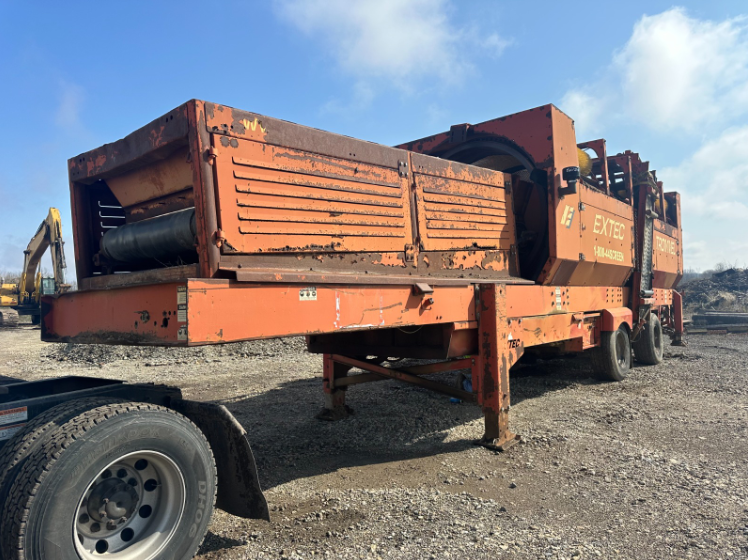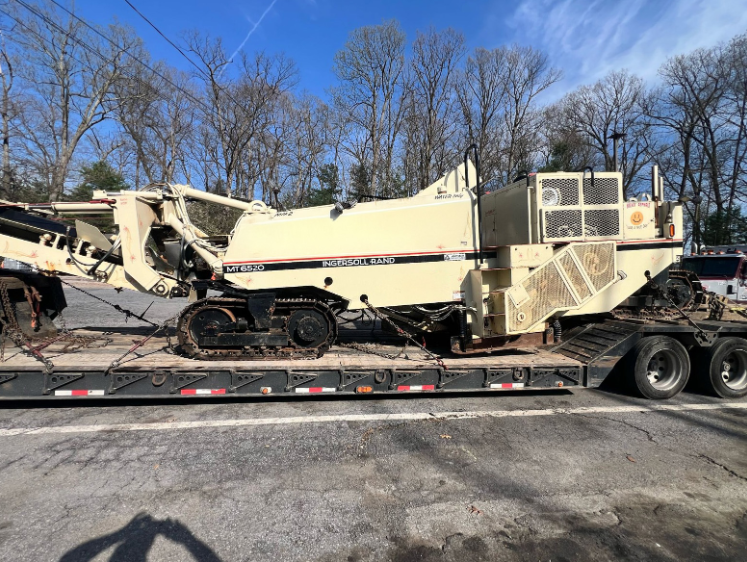Do you need a freight forwarder or a freight broker? It’s a question we hear a lot here at STT, and it’s not surprising at all: when it comes to logistics, the terminology alone can feel like a maze—and knowing which provider suits your operation best isn’t always immediately obvious.
That’s where we come in.
At STT Logistics Group, we know that better logistics begin with better clarity. So, understanding the core differences between forwarders and brokers can save you precious time and prevent delays. It can also make sure you’re not overspending—or underserving your freight.
In this post, we’ll break down exactly what each type of service provider does, when to use them, and how they stack up on cost, compliance, and tech.
STT freight broker Alejandro Paz: “Logistics truly is a masterpiece, an intricate web connecting shippers, receivers, drivers, brokers, and more”
| Key Takeaways Freight forwarders are ideal for international shipping. They handle everything from customs and warehousing to cross-border compliance and end-to-end transport logistics. Freight brokers are best for domestic, time-sensitive moves. They quickly match loads with reliable carriers, working quickly and flexibility without the overhead. Cost differences reflect service scope: forwarders offer all-in-one solutions at a higher base cost, while brokers keep it lean with pay-per-shipment pricing. Licensing matters—always verify credentials like FMCSA registration for brokers and OTI/FMC licenses for forwarders. Technology tools differ: forwarders provide global visibility platforms, while brokers use nimble TMS systems for speedy domestic dispatch and tracking. Hybrid solutions are common—using forwarders for international legs and brokers for domestic distribution can offer the best of both worlds. Choose strategically based on your freight’s complexity, geography, and internal resources. |
What Is a Freight Forwarder?
You can think of a freight forwarder as your logistics command center. They coordinate international shipments from pickup to final delivery, and take physical possession of the cargo along the way.
As well as organizing transport, freight forwarders manage:
- 📦 Warehousing and distribution
- 🌎 Cross-border coordination
- 🧾 Customs clearance and documentation
- 🚢 Ocean, air, and land freight movement
When and Why to Use a Freight Forwarder
If your freight is going global, freight forwarders are your best ally. They coordinate complex, multi-leg shipments, manage customs, and provide end-to-end oversight—so an easy ride for you!
Here’s when a forwarder makes sense:
✔️ International shipping
From ocean freight to customs forms, they handle every detail.
✔️ Consolidation needs
Shipping just a few pallets? Forwarders group your cargo with others to reduce per-unit costs.
✔️ No in-house logistics team
Let their experts manage the full process—from warehousing to delivery.
✔️ Complex requirements
Cargo insurance, inspections, global routing—forwarders manage it all, using the infrastructure and strategic insight to get it done right.
Forwarders manage risk, reduce delays, and provide visibility across borders, time zones, and transportation modes. If you need more than “just transport,” a freight forwarder delivers.
What Is a Freight Broker?
While freight forwarders handle international logistics end to end, freight brokers focus on domestic transport—and they do it with speed and precision. They act as the vital link between shippers and carriers, without ever taking physical possession of the cargo.
If you’re shipping freight within the U.S. and need quick access to reliable trucks, brokers are your go-to pros. They don’t deal with warehousing or customs—they simply move your load from point A to point B.
Focused on Transportation, Not Storage
Freight brokers work purely on the transport side of things. Here’s what they bring to the table:
🚚 Carrier matchmaking: They tap into wide-reaching networks to find reliable trucks at competitive rates.
🏆 Like when STT broker Gaby needed to move a 118,000 lb Kleemann crusher from a remote desert site—with flood damage and steep hills in the mix. She quickly sourced a lowboy trailer and experienced carrier who could handle extreme terrain, all while keeping the job on budget and on time. (Read case study)
🔁 Real-time adaptability: If a truck falls through, they find another—fast.
🏆 Just like our broker Ricardo, whose driver walked off the job mid-winter after hours spent defrosting a 1978 crane with a torpedo heater. Within minutes, Ricardo had a new truck lined up and the load back on track. (Read case study)
📞 Coordination pros: They manage communication between shipper and carrier so the job runs smoothly.
🏆 Just like when Andre and Daniel helped a client purchase and move an Ingersoll cold planer. The seller was hard to reach, and the machine wasn’t ready—but through persistent follow-up and seamless coordination, they lined up the pickup, kept everyone in the loop, and earned the client’s trust for future hauls. (Read case study)
💸 Cost-conscious solutions: No warehouses or customs departments means lower overhead—and often, lower fees
🏆 Take Josh’s case: when a client bought a broken-down John Deere loader at auction, Josh arranged a cost-effective domestic haul without all the extras. No frills, no inflated costs—just a smart match between cargo and carrier that saved time and money. (Read case study)
Best for Domestic and Time-Sensitive Moves
If you’re moving freight within the U.S. and want flexibility without a long-term contract, a freight broker is ideal.
- No long-term commitments
- Great for both LTL shipping and full truckload shipping
- Ideal when you need capacity fast—especially during tight markets
Their lean structure means they move fast, stay nimble, and deliver cost-effective results for shippers with straightforward domestic needs.
When and Why to Use a Freight Broker
Need fast, flexible freight movement across the U.S.? A freight broker is your go-to. They don’t own trucks or take possession of cargo—they connect shippers to vetted carriers and keep things moving.
Perfect for:
✔️ Domestic shipments
From LTL to full truckload, brokers specialize in moving freight quickly and cost-effectively.
✔️ Scalable shipping needs
Got variable volumes? Brokers flex with you—no contracts or minimums.
✔️ Specialty equipment
Flatbeds, reefers, hazmat—they’ll source exactly what your freight needs.
✔️ Tight timelines
When you need capacity fast, brokers tap national networks to get your load moving—even during peak seasons.
Lean, responsive, and focused on transportation only, brokers keep overhead low and efficiency high. For straightforward moves, they’re tough to beat.
Freight Forwarder vs Freight Broker: Key Differences
While both help move freight, their roles are quite different:
| Feature | Freight Forwarder | Freight Broker |
| Takes possession of cargo | ✅ Yes | ❌ No |
| Handles customs clearance | ✅ Yes (international) | ❌ No |
| Specializes in | International logistics, multi-leg shipments | Domestic freight, truckload and LTL |
| Offers warehousing | ✅ Often | ❌ No |
| Issues own bill of lading | ✅ Yes | ❌ No |
| Flexibility with carriers | ✅ Yes | ✅ Yes |
| Ideal for | Global shipments with multiple touchpoints | Fast domestic moves, flexible routing |
| Cost | Higher base cost, more inclusive service | Lower cost, pay-per-shipment model |
| Licensing requirements | Extensive (e.g., OTI for ocean freight) | FMCSA, surety bond |
Photo by Kanokpol Prasankhamphaibun on Vecteezy: Two men shake hands on agreeing a mutually beneficial shipping arrangement
Real-World Examples: Broker vs Forwarder in Action
Example 1: Freight Forwarder
A mid-sized electronics company in Texas needs to ship a 12-pallet order of laptops to a distributor in Germany. The shipment requires ocean freight, export documentation, customs clearance, and warehouse storage in Hamburg before last-mile delivery.
A freight forwarder handles the entire journey, including insurance and tracking across multiple legs.
Example 2: Freight Broker
A furniture retailer in Florida needs to restock its stores across three states with full truckloads of product. Timing is tight due to a weekend promotion.
A freight broker secures multiple carriers with the right trailer types and coordinates staggered delivery windows—all within 48 hours.
Understanding Cost Differences
Freight costs aren’t just about the numbers on a quote—they’re about the value behind the service. And when it comes to comparing freight forwarders and freight brokers, that difference shows up fast.
Freight forwarders tend to charge higher service fees, but that’s because they’re doing a whole lot more. They handle customs, documentation, warehousing, multi-modal transport, and even cargo insurance. Their pricing often bundles these services, offering one-stop-shop convenience—especially for international shipments where delays or customs errors can cost thousands.
On the other hand, freight brokers operate on leaner margins. They act as connectors between shippers and domestic carriers, usually charging a commission on top of carrier rates. For simple, domestic point-to-point moves, this transparency and cost-efficiency are hard to beat.
What’s the smart way to compare costs? Look at your total landed cost—not just the fee. That includes:
- Time lost to customs issues
- Internal admin or staff support
- Storage and re-handling delays
- Rebooking or re-routing fees due to missteps
The more complex your move, the more value a freight forwarder can bring. But for straightforward domestic hauls? A broker may be all you need.
| How to Decide: Freight Broker or Freight Forwarder?Choose a Freight Forwarder if: |
What About Hybrid Shipments?
Sometimes, it’s not a question of freight forwarder or freight broker—it’s both.
Let’s say your freight is manufactured overseas and needs to be delivered to multiple U.S. warehouses. A freight forwarder might manage the international leg: booking ocean freight, handling customs clearance, and arranging delivery to a U.S. port or storage facility. From there, a freight broker steps in to coordinate domestic trucking across state lines—fast, flexible, and cost-efficient.
This kind of handoff is common for businesses with global supply chains and distributed fulfillment models. It allows you to leverage the strengths of each provider:
- Forwarders handle complexity, compliance, and cross-border logistics.
- Brokers optimize routing and capacity once freight lands on U.S. soil.
At STT Logistics Group, we understand that no two supply chains are alike. That’s why we work closely with your team to build a transport strategy that scales—whether that means working alongside your freight forwarder or managing the entire journey from door to door.
Licensing and Regulatory Considerations
Don’t just trust your freight to anyone with a phone and a spreadsheet. In this industry, licensing matters—and it’s non-negotiable.
Freight brokers must be licensed by the Federal Motor Carrier Safety Administration (FMCSA) and backed by a $75,000 surety bond to protect clients against non-performance. This ensures they operate with a basic level of accountability.
Freight forwarders, particularly those handling ocean or air shipments, need additional permits like an Ocean Transportation Intermediary (OTI) license from the Federal Maritime Commission (FMC). These credentials authorize them to coordinate international transport and take custody of your cargo—important distinctions when your freight is crossing borders.
Before working with either, always verify:
- Active licenses (FMCSA, FMC, or IATA, depending on the provider)
- Cargo insurance coverage
- A proven compliance history with customs, carriers, and industry regulations
One missed document or permit can lead to fines, delays, or even seizure of your cargo. We’ve seen it happen. At STT Logistics Group, we only work with compliant, credentialed partners—and we’re happy to show you proof.
Red Flags to Watch For When Choosing a Provider
⚠️ No active licenses or credentials
⚠️ Lack of cargo insurance or vague coverage
⚠️Unclear or inconsistent communication
⚠️No carrier vetting process
⚠️No visibility or tech tools
Technology and Visibility Differences
In logistics, visibility is everything—and the right tech makes a big difference.
Freight forwarders use robust global tracking systems that connect carriers, ports, customs, and warehouses, offering full oversight across borders and time zones.
Freight brokers, meanwhile, rely on agile Transportation Management Systems (TMS) built for domestic efficiency—fast load tracking, dispatch updates, and carrier coordination.
Bottom line:
Choose a forwarder for global visibility and document control.
Choose a broker for real-time updates and domestic speed.
Choosing the right service provider for your business
- Start by reviewing your shipping patterns—domestic freight often calls for a broker, while international moves point to a forwarder.
- Assess your internal logistics team: do you need full-service support or just targeted help?
- Industry experience is key. Choose a provider with proven expertise in your product type and shipping lanes.
- Finally, consider their tech tools—strong systems improve visibility, control, and efficiency.
Get a free quote from STT Logistics Group to explore how our expertise can boost your shipping efficiency.
Making the strategic logistics choice
Choosing between a freight forwarder and a freight broker is a strategic decision that can shape your supply chain efficiency. Your choice should reflect your global shipping needs, service requirements, and in-house capabilities.
At STT Logistics Group, we support both ends of the spectrum—whether you need fast domestic transport or full-service international coordination. With the right tools and expertise, we’ll keep your freight moving and your team informed.
You call. We haul. That’s all.
📞 Ready to get a quote or talk it through with an expert? Contact us today.







